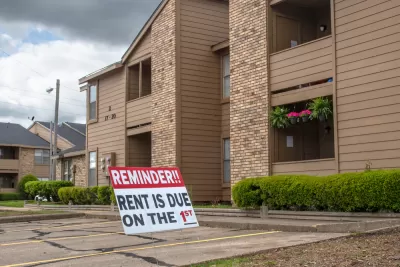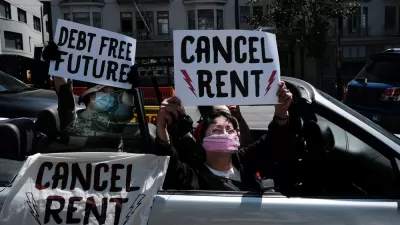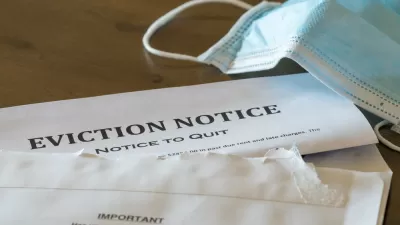Another month, another rental payment crisis for millions of Americans.

Henry Louis Taylor, Jr., a professor of urban and regional planning at the University of Buffalo, is featured in an ABC News article about the ongoing risk of mass evictions as the country's millions of renters collides with tens of millions of new unemployment claims across the country.
Taylor said that "federal and statewide eviction moratoriums are based on COVID-19 timetables that are 'too short' and don’t consider predictions from medical experts that the pandemic could persist into the fall and beyond, as public health officials have suggested," according to the article, written by Deena Zaru.
"More than 30 million Americans have filed for unemployment insurance since the COVID-19 crisis hit the U.S. in March, and despite a range of temporary federal and state eviction moratoriums, some Americans are still being served eviction notices amid a public health crisis that requires many people to stay at home," according to Zaru.
In April, a Planetizen article detailed the looming eviction crisis, as state, local, and national policies have only so far deferred the housing crisis. Since then, progressive members of Congress have pushed for more thorough forms of rent relief, while lawyers for landlords have achieved legal success against local eviction moratoriums.
Emily Benfer, a professor of clinical law and the director of Columbia University’s Health Justice Advocacy Clinic, is also quoted in the ABC News article, predicting a major spike in evictions simultaneous to the country finally achieving a decline in coronavirus infections.
As reported in a separate article by Marisa Peñaloza, the American Civil Liberties Union recently sent a letter to state governments asking for action to stave off mass evictions once eviction moratoriums end.
FULL STORY: 'Mass evictions' on the horizon as US confronts coronavirus housing crisis: Advocates

Alabama: Trump Terminates Settlements for Black Communities Harmed By Raw Sewage
Trump deemed the landmark civil rights agreement “illegal DEI and environmental justice policy.”

Planetizen Federal Action Tracker
A weekly monitor of how Trump’s orders and actions are impacting planners and planning in America.

The 120 Year Old Tiny Home Villages That Sheltered San Francisco’s Earthquake Refugees
More than a century ago, San Francisco mobilized to house thousands of residents displaced by the 1906 earthquake. Could their strategy offer a model for the present?

Ken Jennings Launches Transit Web Series
The Jeopardy champ wants you to ride public transit.

BLM To Rescind Public Lands Rule
The change will downgrade conservation, once again putting federal land at risk for mining and other extractive uses.

Indy Neighborhood Group Builds Temporary Multi-Use Path
Community members, aided in part by funding from the city, repurposed a vehicle lane to create a protected bike and pedestrian path for the summer season.
Urban Design for Planners 1: Software Tools
This six-course series explores essential urban design concepts using open source software and equips planners with the tools they need to participate fully in the urban design process.
Planning for Universal Design
Learn the tools for implementing Universal Design in planning regulations.
Clanton & Associates, Inc.
Jessamine County Fiscal Court
Institute for Housing and Urban Development Studies (IHS)
City of Grandview
Harvard GSD Executive Education
Toledo-Lucas County Plan Commissions
Salt Lake City
NYU Wagner Graduate School of Public Service




























